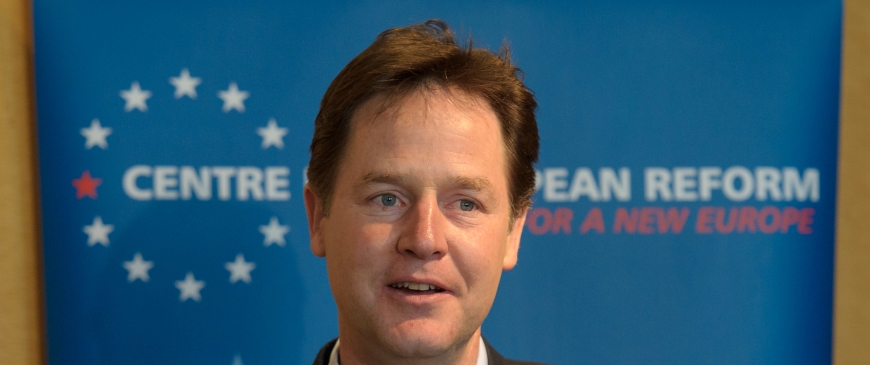
The EU debate: How should Labour respond?
Well done Nick Clegg. Not for winning – it is hard to debate with someone who regards the truth as just one option – but for taking part. And for the radical strategy of making the European elections about Europe.
How should Labour’s leaders respond? Ed Miliband is firmly pro-European. He knows that for crucial 21st century issues – including climate change, which Miliband definitely ‘gets’ – membership is essential. He and Douglas Alexander have a sensible strategy on Europe: set out a pro-European position, but do not flesh out too many details. Oppositions do not need detailed policies – something Blair got right.
But Labour’s leaders should be more outspoken on the benefits of European Union membership. We do not need more policy; we need more vision. When she was shadow Europe minister, Emma Reynolds used to say that pro-Europeans need to find a stronger example than lower mobile roaming charges to exemplify what the EU is for. This is not a new problem. As Jacques Delors said back in the 1980s, it is hard to fall in love with the idea of a single market. But it is not hard to fall in love with a job, or with the £3,000 a year that the CBI says EU membership is worth to each British household. Clegg did well on outlining the economic benefits of membership: Farage’s response was just bluster and Europhobic fantasy.
The pro-EU vision should go beyond economics. European integration, in combination with NATO, has helped deliver peace. War in Europe may seem pretty unthinkable today – but it is not. Ask the Serbs, Croations, Kosovar or Bosnians. The fact that the UK and the Republic of Ireland are EU members helped Blair broker the Good Friday agreement. Farage said that the EU has ‘blood on its hands’ over Ukraine, though he did not say why. Yes, the EU should have imposed tougher sanctions, and reduced its reliance on Russian gas. Much of the Russian government’s revenue comes from oil, gas and coal. So the invasion of Crimea was, in effect, funded by fossil fuels. The EU should do more to reduce its use of Russian gas. If we were outside the EU, we Brits could boycott Russian gas. But the Kremlin would not care, because only one per cent of the gas used in the UK comes from Russia. William Hague is taking a strong and sensible line on this issue. Labour should support him loudly on this. A chance to prove that EU membership is vital for national security, and that Europe need not be a party political issue.
Last night’s debate showed again that Ukip is primarily an anti-immigration party. Pro-Europeans respond by saying that immigration is good for economic growth. That is true, but not enough. An unemployed person waiting for a council house will not feel more pro-immigrant if told that this is a price worth paying for higher GDP. The way to reduce anti-immigrant feeling is to create more jobs and homes. A large programme to improve the energy efficiency of Britain’s housing stock, funded by a windfall tax on energy companies, would create many new jobs and help the millions living in fuel poverty. More new homes would make people less hostile to ‘outsiders’. Emma Reynolds, now shadow housing minister, knows and says this. Miliband should highlight the issue. A promise of new homes could even be on a pledge card.
Should Labour say anything more on a referendum? No. The party line is solid and sensible. If there is a proposal for a treaty change that would transfer more power to Brussels, there will be an in-out referendum in the UK. This makes a referendum very unlikely, because no British government will agree to such a change, and no other European government is pushing for it anyway. Labour’s referendum policy is very similar to the Liberal Democrats. That will be useful if there is another hung parliament next May.
